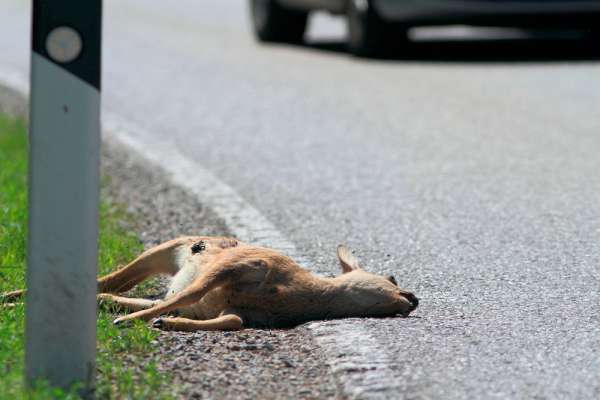When father poked chops from the pan to distribute, he sometimes dared to ask: “Do you like this? It's a piece of a dead pig!” When you first heard it, you had to think about it. After that, the origin became obvious for all meat, and everyone stood up for their own portion.
In our culture, (pieces of) non-dead animals are rarely eaten. We find this barbaric, except for oysters (?). If you wish, you can look up unsavory films about animals that have been eaten alive, such as sea urchins in Italy, octopus in Korea, fish prepared in Japan, drunken shrimp in China, Casu Marzu worms in Sicily, etc.
We usually assume that animals are killed for meat consumption just before the meat is processed. And that blood is drained as quickly as possible.
When hunting, there may be more time between killing and processing. Hours, a day ...
After large hunting parties, game used to be sometimes buried for days to keep it cool and to process the meat later.
In the case of being let to be noble (faisandage), game was 'aged' for days before it was processed.
We call eaters of already dead animals (carcasses) scavengers (rat, foxes, wasps, ravens, etc.).
Died animals may have been ill, it is best to stay away from that. Not to mention poisoned animals. And everything that has a strange smell.
If you make snares or deadly traps you check them regularly, so you also know that the captured game cannot be dead for too long.
But what if you find a dead animal (hit by a car), is that still edible? If they are still stiff they can never be dead for more than a few hours, so you can eat them like poached game.
Corpse stiffness or rigor mortis is the stiffening of the body after death. The body also becomes cold. From about two to six hours after death, the muscles (in humans) begin to stiffen. This stiffness lasts for approx. 12 hours and gradually disappears again after approx. 24 hours.
 In "The art of survival" Rüdiger Nehberg writes "You must ... be able to scrape a dog that has been run down and eat it. Don't throw the meat away ... because it's already rotting. ... still valuable: as bait for other meat eaters and as a breeding ground for maggots. ... They are your purest concentrate for you. "
In "The art of survival" Rüdiger Nehberg writes "You must ... be able to scrape a dog that has been run down and eat it. Don't throw the meat away ... because it's already rotting. ... still valuable: as bait for other meat eaters and as a breeding ground for maggots. ... They are your purest concentrate for you. "
"Meat eaters such as dogs, cats, pigs, rats, hedgehogs, etc. must be properly roasted or cooked due to the danger of trichina."
Note: heating kills bacteria, but does not eliminate the possibly formed toxins.
Marrow in a piece of bone decays very quickly. Spoiled meat usually becomes slimy. Fresh meat that you see hanging at the butcher's in warm countries is usually still suitable for consumption (despite the flies). It is consumed befor bacteria and eggs get the chance to develop.
Vultures have special stomach acid that is extremely acidic and kills all viruses and bacteria, and also an excellent immune system that is adapted to break down toxins. This allows them to even eat carcasses infected with anthrax, swine flu or botulin. And when the meat goes through their digestive tract, there is no trace of the disease maker in the droppings. So vultures help to prevent the spread of diseases.
2018: due to the economic crisis and the energy shortages, cooling is falling in Venezuela. Poor people buy cheap rotten meat to survive. "It smells a little dirty, but you rinse it with a little vinegar and lemon," says Yeudis Luna.
